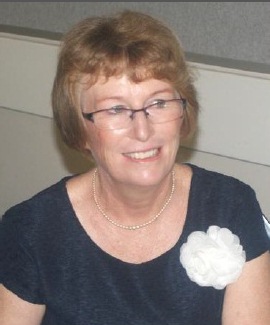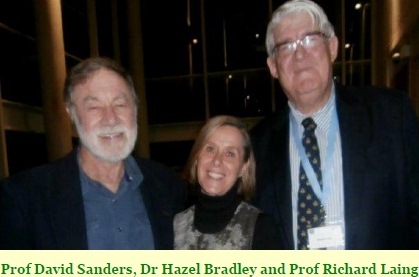
Jakes Gerwel Award in Public Health 2013 – Dr Kirstie Rendall-Mkosi
14 December 2013Jakes Gerwel Award in Public Health 2014 – Dr Saadiq Kariem
14 December 20142014 David Sanders Lecture – Prof Richard Laing
Prof Richard Laing delivered the Annual David Sanders Lecture 2014: “Access to Medicines: the Struggle Continues”
Over forty years ago Richard Laing and David Sanders were medical students together in Zimbabwe, where they were both subsequently involved in various capacities in the health services. During his last threeyears in the country (1987- 89) Richard developed the Zimbabwean Essential Drugs Programme (ZEDAP).
This set the direction for his professional career in pharmaceutical policy, notably at the World Health Organisation (WHO) and latterly back at Boston University’s School of Public Health as professor of International Health.
Prof Laing focused on critical issues influencing access to medicines. He commenced by reflecting on key moments including the first essential medicines list developed in 1977; the Nairobi conference on Rational Medicines Use which introduced a compromise by limiting the concept to the public sector; and the breakdown in 1998 of the compromise when 39 big Pharma companies sued the South African government.
While many have perceived patents and patent law to be barriers to the essential medicines concept, Kowalski et al (2011) quashed this assumption by showing that less than 6% of essential medicines were patent protected anywhere in the world. Besides patents, however, pricing remained a key issue with studies showing wide variations in prices both between countries and within the public and private sectors. Ironically, even though medicines in the public sector may be affordable, and even free in some cases, frequent poor availability results in patients reverting to high-priced medicines from the private sector.
Affordability of medicines is a critical issue in many countries with cumulative mark-ups between the manufacturers’ selling price and the final patient price varying considerably. Studies have revealed that in some countries the cumulative mark-up can be up to 600 times the manufacturers’ selling price.
Although generic medicines have been proposed as one answer to ensuring availability and affordability of essential medicines, available data show massive variations in use between countries. While the United States is a world leader in generic uptake by volume (almost 80%), Austria is at the other end of the scale with generics having just over a third of the market share and brand loyalty remaining high, even after patents end. The situation in South Africa falls between these two: in 2010 generics had 71% market share and brand erosion in the year after the patent ends varied between 60% to 90%.
Prof Laing concluded by pointing to several hopes and challenges in South Africa regarding access to medicines, including the National Health Insurance, which will hopefully include access to essential medicines; reform of the Medicines Control Council to speed up drug registrations; and lastly reform of patent legislation resulting in faster access to generics. He asserted that whilst South Africa has made significant progress in extending access to medicines in the past 20 years since democracy, ‘the struggle continues’.
Prof Richard Laing: “Annual David Sanders Lecture 2014 “Access to Medicines: the Struggle Continues” Read more

